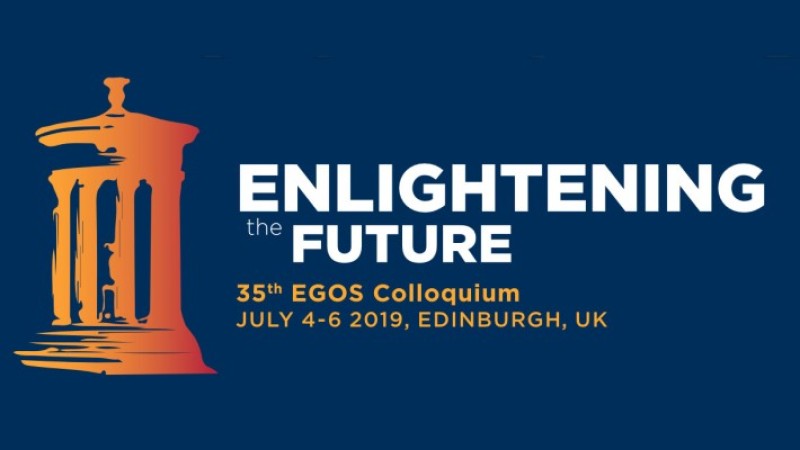Sub-theme 28: Leadership Development for a Post-truth, Post-human and Post-organizational World
Call for Papers
This sub-theme is aimed at exploring how new theory in leadership development research can help us better understand, critique
and resist contemporary work and non-work settings marked by a turn towards the post-truth, post-human and post-organizational.
At a time when the consensus of liberal democratic reason appears to be under strain, at least in Western Europe
and North America, step forward leadership, a concept so associated with romance and mystery, affect and the aesthetic, that
it continues to confound stable categorisation and predictive validity, an ideal concept for the post-everything world. Few
other concepts can be equally castigated and celebrated for their artfulness and resistance to ‘scientific’ and discipline-bound
ways of knowing. This refusal of leadership to sit neatly within the stable boundaries of academic disciplines, could make
it a useful concept for better understanding these confounding times.
We invite submissions that seek to
gain insight into how leadership develops via offering an innovative, critical or unusual conceptual interpretation. Perhaps
leadership and leadership development are concepts better understood less through Enlightenment reason and more through Romantic
aesthetics; perhaps leadership and leadership development, however, would benefit from a more ‘enlightened’ and rational emphasis.
Or might we be better served breaking the Enlightenment-Romantic dialectic entirely and instead focusing on innovating approaches
to research further through the nascent but abundant range of conceptual foci in leadership and leadership development research
– feminist (e.g. Elliott & Stead, 2018), aesthetic (e.g. Carroll & Smolović Jones, 2018), queer (Harding et al., 2011),
process (Simpson et al., 2017), post-human (Ford et al., 2017), political (Smolović Jones et al., 2016) and psychoanalytic
theory (Driver, 2013), to name a few.
While this sub-theme looks forward to new theory, it also looks to
test existing theory. To what extent has leadership development theory and methodology – even of the more critical variety
– become trapped within approaches that make outdated or limited assumptions? People may develop leadership in relation to
more diverse identities, beyond the traditional employing organization relationships (Nicholson & Carroll, 2013). These
might include portfolio workers who develop leadership in relation to professional communities, rather than a single employing
organization. Or we might learn from those who develop leadership at arm’s length from an employer, via their trade union,
where the ethos that drives development will be different from that of profit-seeking companies, but also from the corporate
interests of non-profit organizations. Technological advancement and automation underlie much of the changing ways in which
people experience leadership and management – for example, with gig economy workers directed and managed through software
applications and via algorithms. We invite submissions that consider the conceptual and methodological challenges posed to
leadership development research by automated and precarious work.
Equally, one could argue that under the
rule of authoritarian leaders, developing forms of critical and emancipatory collective leadership has never been so important.
Finally, it is important to turn our critical gaze inwards at the leadership industry and to consider whether leadership development
has succumbed to the contemporary post-truth turn. Wherever one looks, it seems – universities, consultancies, mass market
books, online training providers – one is awash in offers for developing leadership. We invite submissions that cast a critical
eye upon the leadership industry.
We invite research addressing, but not confined to the following questions:
How and should leadership development research return to the principles of Enlightenment reason? Can more conceptually and methodologically rigorous foundations help progress the field?
Which theories can be drawn upon to offer innovative new directions to leadership development research or to further build on nascent but underdeveloped directions in the field?
Does leadership development have a future in the increasingly automated, virtual and precarious workplace?
How can leadership development research help us better understand the organizing processes of grassroots movements and social movement organizations?
Can leadership development research help us better understand and also resist the rise of post-truth authoritarian forms of leadership?
References
- Carroll, B., & Smolović Jones, O. (2018): “Mapping the aesthetics of leadership development through participant perspectives.” Management Learning, 49 (2), 187–203.
- Driver, M. (2013): “The lack of power or the power of lack in leadership as a discursively constructed identity.” Organization Studies, 34 (3), 407–422.
- Elliott, C., & Stead, V. (2018): “Constructing Women’s Leadership Representation in the UK Press During a Time of Financial Crisis: Gender capitals and dialectical tensions.” Organization Studies, 39 (1), 19–45.
- Ford, J., Harding, N., Gilmore, S., & Richardson, S. (2017): “Becoming the leader: Leadership as material presence.” Organization Studies, 38 (11), 1553–1571.
- Harding, N., Lee, H., Ford, J., Learmonth, M. (2011): “Leadership and charisma: A desire that cannot speak its name?” Human Relations, 64 (7), 927–949.
- Nicholson, H., & Carroll, B. (2013): “Identity undoing and power relations in leadership development.” Human Relations, 66 (9), 1225–1248.
- Simpson, B., Buchan, L., & Sillince, J. (2017): “The performativity of leadership talk.” Leadership, first published online on June 5, 2017, http://journals.sagepub.com/doi/pdf/10.1177/1742715017710591.
- Smolović Jones, O., Winchester, N., & Grint, K. (2016): “Putting the discourse to work: On outlining a praxis of democratic leadership development.” Management Learning, 47 (4), 424–442.


